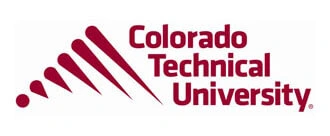You could learn how information technology is used within health care settings in Colorado Technical University's Bachelor of Science in Health Care Management with a concentration in Health Informatics program. Find out more about the Bachelor of Science in Health Care Management with a concentration in Health Informatics program here.
<h2 id="section---FrequentlyAskedQuestions">Frequently Asked Questions</h2>
<h3 id="section---WhatKindOfProgramIsIt">What Kind of Program Is It?</h3>
<p>The Bachelor of Science in Health Care Management with a concentration in Health Informatics program at Colorado Technical University is designed to offer you an introduction to the various types of health delivery organizations in the United States, including the finance, practice management, and administration of health care organizations. You'll have the opportunity to learn about medical terminology, economic principles that impact health services, global health systems and issues, software applications in health care, health care statistics, managerial accounting for health services managers, and legal regulations for human resource management. Concentration coursework may examine topics such as database management systems, electronic health records, health information systems, HIPAA compliance, and health analytics. The program is intended to help prepare you for the National Healthcareer Association Certified Medical Administrative Assistant (CMAA) examination and the Certified Healthcare Access Associate (CHAA) examination offered by the National Association of Healthcare Access Management. This program is offered online and at select campuses.
</p>
<h3 id="section---WhatAreThePrerequisites">What Are the Prerequisites?</h3>
<p>As a potential applicant to the Bachelor of Science in Health Care Management with a concentration in Health Informatics program, you should enjoy working with computers and information technologies. You should also be interested in a career in the health care industry. Before applying to Colorado Technical University's programs you must have a high school diploma or equivalent; some programs have additional requirements.
</p>
<h3 id="section---WhatAreTheCourseRequirements">What Are the Course Requirements?</h3>
<p>The Bachelor of Science in Health Care Management with a concentration in Health Informatics program includes 180 credits. In addition to 66 general education credits, you must complete 36 lower level core credits, 58 upper level core credits, and 20 concentration credits listed below.
</p>
<p><u>Health Care Management Course Requirements</u>
</p>
<p />
<table border="1"><tr><th>Course Code</th><th>Course Name</th></tr>
<tr><td>ACC 310</td><td> Accounting for Non-Accounting Majors</td></tr>
<tr><td>HSS 103</td><td> Introduction to Health Care Delivery Systems</td></tr>
<tr><td>HSS 110</td><td> Concepts in Health Care Organizations</td></tr>
<tr><td>HSS 121</td><td> Medical Terminology</td></tr>
<tr><td>HSS 210</td><td> Fundamentals of Reimbursement in Health Care</td></tr>
<tr><td>HSS 215</td><td> Software Applications in Health Care Organizations</td></tr>
<tr><td>HSS 290</td><td> Certification Preparation</td></tr>
<tr><td>MGM 255</td><td> Management Fundamentals</td></tr>
<tr><td>UNIV 201</td><td> Career Planning and Management</td></tr>
<tr><td>BADM 370</td><td> Quality Management</td></tr>
<tr><td>HCM 330</td><td> Health Care Statistics and Research</td></tr>
<tr><td>HCM 307</td><td> The Health Care Industry</td></tr>
<tr><td>HCM 410</td><td> Fiscal Management in Health Care Services</td></tr>
<tr><td>HRM 335</td><td> Legal Issues in HRM</td></tr>
<tr><td>HRMT 215</td><td> Management of Human Resources</td></tr>
<tr><td>HSA 320</td><td> Administration in Health Care Services</td></tr>
<tr><td>HSS 310</td><td> Economics of Health Care</td></tr>
<tr><td>HSS 420</td><td> Global Health Systems</td></tr>
<tr><td>HSS 490</td><td> Health Care Administration/Management Capstone</td></tr>
<tr><td>IT 254</td><td> Spreadsheet Applications</td></tr>
<tr><td>MKTG 225</td><td> Introduction to Marketing</td></tr>
<tr><td>MGM 335</td><td> Organizational Behavior Principles</td></tr>
<tr><td>MPM 210</td><td> Introduction to Project Management</td></tr>
</table><p><u>Health Informatics Course Requirements</u>
</p>
<p />
<table border="1"><tr><th>Course Code</th><th>Course Name</th></tr>
<tr><td>HCI 300</td><td> Introduction to Health Informatics</td></tr>
<tr><td>HCI 310</td><td> DBMS for Health Care</td></tr>
<tr><td>HCI 380</td><td> Security of Electronic Health Information</td></tr>
<tr><td>HCI 400</td><td> Health Analytics and Business Intelligence in Health Care</td></tr>
<tr><td>HCI 490</td><td> Health Informatics Capstone</td></tr>
</table><h3 id="section---WhatCouldIDoAfterIGraduate">What Could I Do After I Graduate?</h3>
<h4 id="section---CareerOpportunities">Career Opportunities</h4>
<p>After completing the Bachelor of Science in Health Care Management with a concentration in Health Informatics program, you may have the skills and training that are helpful in seeking employment opportunities in hospitals, private practices, public health organizations, clinics, outpatient clinics, insurance companies, and other health care delivery-related organizations. Possible positions may include:
</p>
<ul><li>Health information manager
</li><li>Medical records manager
</li><li>Medical office manager
</li></ul><h4 id="section---AdvancedDegrees">Advanced Degrees</h4>
<p>As a graduate of the Bachelor of Science in Health Care Management with a concentration in Health Informatics program, you could choose to continue your studies by pursuing a related master's degree. Master's degree programs could offer you advanced training in health care policy, health care administration, and health care information technologies. Examples of master's degree programs you may be interested in could include:
</p>
<ul><li>Master of Science in Health Care Management
</li><li>Master of Business Administration in Health Care Management
</li><li>Master of Science in Health Informatics
</li></ul><p><i>CTU does not guarantee employment or salary. University grants or scholarships are based on established criteria as published in the University's catalog and are awarded after verification that the conditions of eligibility have been met.</i></p>


.svg)


